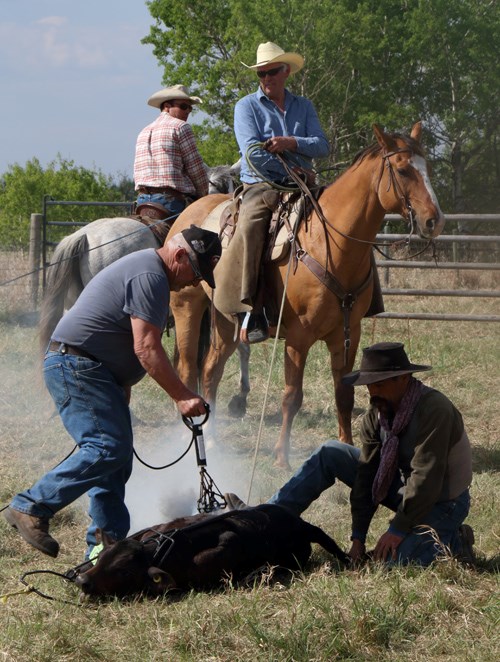In 2008 a costly initiative which affected the Canadian, and specifically the Saskatchewan, livestock industry was put in place in the United States. The Country of Origin Labelling or COOL was a protectionist policy aimed at promoting American over international meat, which created cost to Canadian livestock producers and American consumers.
The World Trade Organization (WTO), after eight years of U.S. legislators pushing COOL, has officially ruled in favour of Canada and Mexico – also affected by the U.S. legislation.
COOL was thought to be a way of allowing American consumers quality control and ensuring the safety of food; but, this actually translated into a tough market for those in the Canadian beef industry and drove up prices of product in the United States.
Ryan Beierbach, on the board of directors of the Saskatchewan Cattlemen’s Association, said, “The WTO ruled in favour of Canada and Mexico, that was the U.S.’s last appeal, we’ll see what else they try to do, but it’s been costing Canadian cattle producers for the last eight years. Cattle prices haven’t been too bad these last couple of years, but before that they were down and we were at a disadvantage. Now it will be a more competitive market and many people in the United States see that. We trade with the U.S. and they trade with us, but a group of American protectionists wanted to be able to export, but not import, and that’s not really the way trade works.”
Beierbach went on to say that this affects Canadian producers, but will have a positive effect on the Saskatchewan livestock industry in particular.
“We don’t have any major packing plants in Saskatchewan, so our cattle are shipped east, west, or south and so this decision affects us in Saskatchewan specifically because of that,” Beierbach said.
One of the reasons for COOL in the United States was based on food safety, but Beierbach was found with Lloyd Thompson, Zone One Chair of the Saskatchewan Stock Growers Association and is on the board of directors of the Saskatchewan Cattlemen’s Association, as well as Ralph Corcoran who practices holistic soil management and many others were found south of Carlyle at John Brown Farms for an old fashioned branding.
The Observer was invited by Helen Finucane with John Brown Farms to the branding where it was stressed that Canadian livestock is safe and top quality, which is why the overruling of COOL by the WTO was important.
“Herd health is very important and brandings are important because it’s when the calves get their inoculations,” Corcoran stated.
Thompson added, “It’s the same as childhood vaccinations, but for the cattle to ensure they’re happy and healthy.”
These happy and healthy calves then translate into happy buyers in the fall according to Corcoran.
Additionally, Corcoran explained that the health of the calves starts down in the dirt, explaining the importance of holistic management.
“Keeping healthy soils makes healthy grass and with more food value in that grass the cattle are getting better care and are healthier,” Corcoran stated.
Thus, producers in Saskatchewan and across Canada have happy and healthy herds while their livelihoods were being threatened by COOL, which has now hopefully run its course after the WTO ruling.




